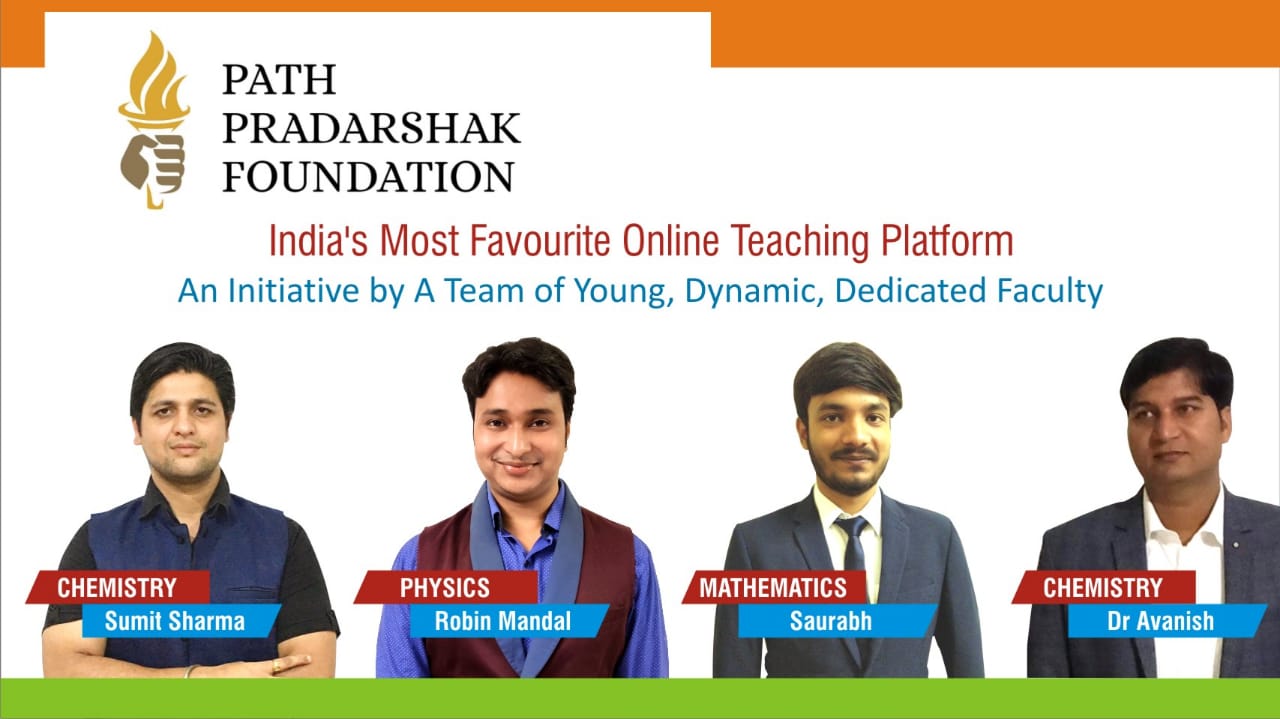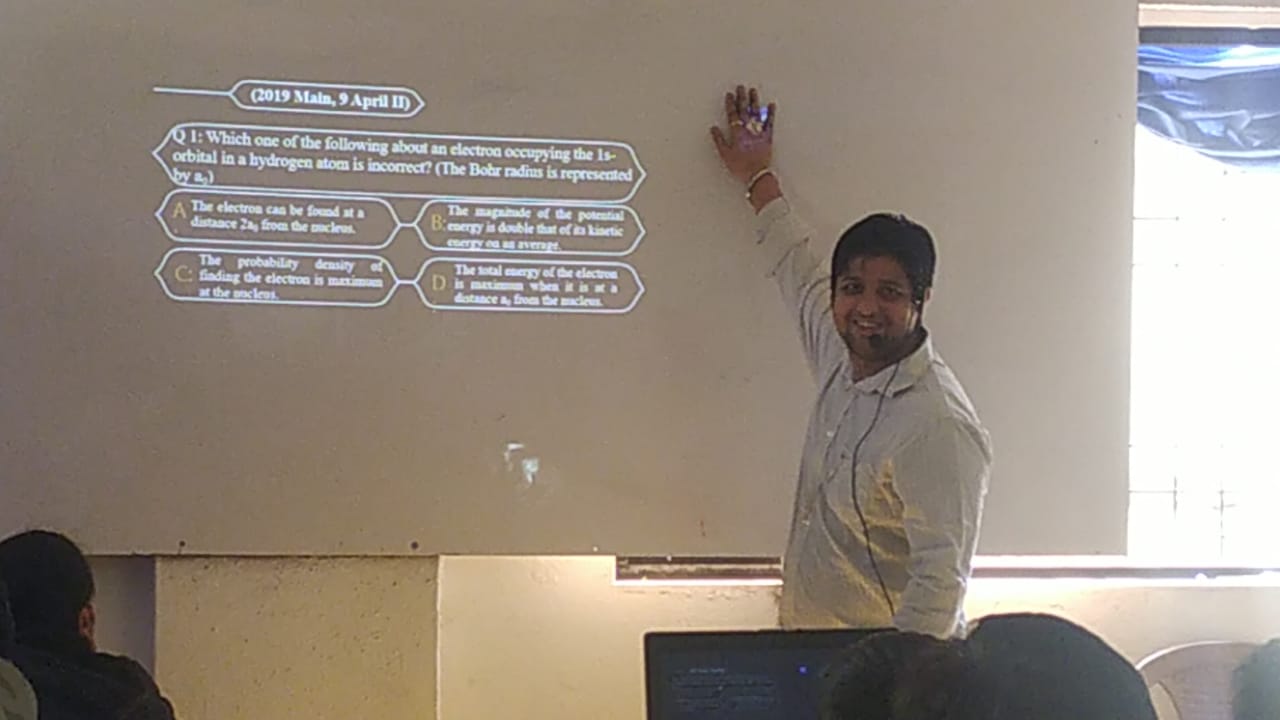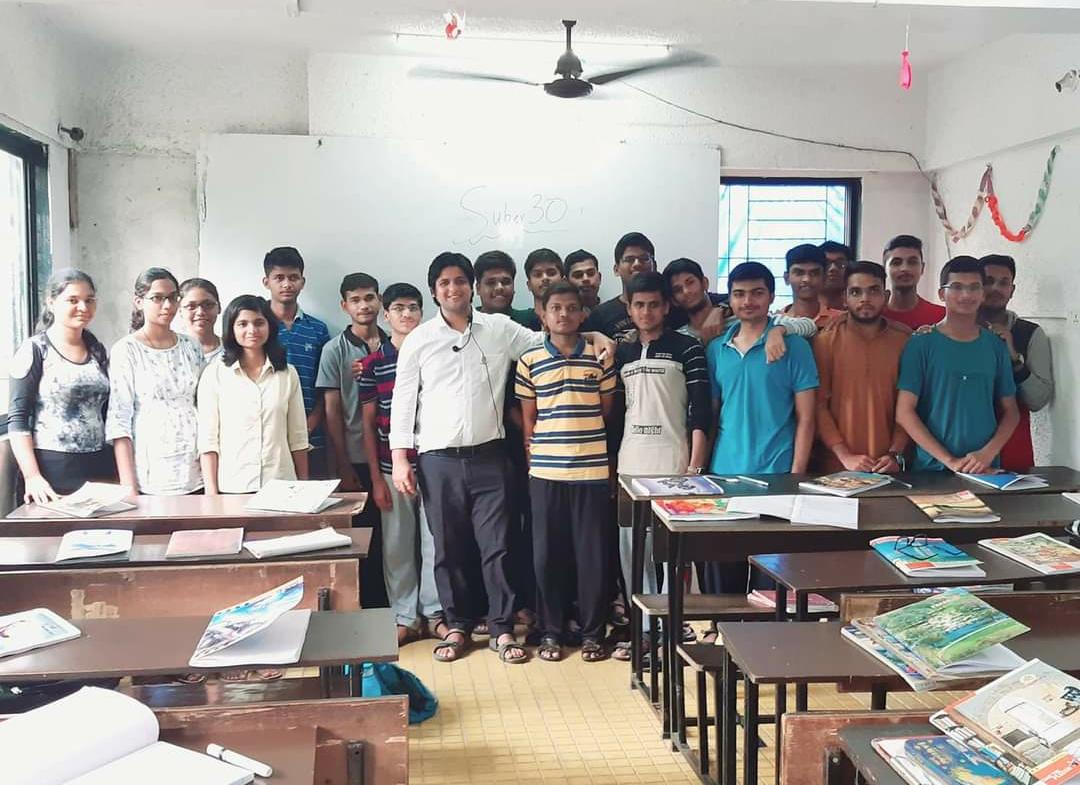When Dipesh Ranveer from Purna Taluka in Parbhani district, Maharashtra, attempted the Joint Engineering Examination (JEE) in April 2019 for the first time, he struggled to understand a few questions. This was not because of his inability to understand science, but a result of his poor English comprehension skills.
“When I first heard about the free online classes organised by the Path Pradarshak Foundation to prepare students for competitive exams like JEE, I signed up for it. Despite clearing the entrance exam to get into their classes, my self-confidence was very low. I had attempted the exam once after school, but couldn’t clear it,” says Dipesh, the son of a village school teacher and a housewife. To prepare for the JEE exam, Dipesh took the 2019/2020 academic year off studying in his village.
“Dipesh couldn’t even comprehend a single English sentence and possessed an incredible inferiority complex about himself. Apart from conceptual understanding, a lot of these competitive exams require more than a working knowledge of English comprehension. He really struggled with the language. Nobody believed in him, but with determination and focus he cleared JEE and got into NIT-Raipur. He’s the first one from his village to get into an NIT,” says Robin Mandal, an IIT-Bombay alumni and co-founder of Path Pradarshak.
Coordinating with a local teacher, who owned a smartphone, Dipesh began attending these free online classes conducted over a YouTube channel called Grow Bharat, which has over 46,000 subscribers.
“I couldn’t understand the questions very well when my preparations began because my English language skills were weak. When I reached out to Robin sir, he suggested that I work on questions that I understood first and then attempt to solve those that I didn’t understand. Through a long process of trial and error, I began understanding the nature of these questions, what they meant and answering them became a lot easier over time. With hours of practice and immense motivation from my teachers at Path Pradarshak, I began understanding these questions a lot better,” recalls Dipesh.

Free online classes for the less privileged
Thanks to the paucity of quality universities in India, cracking exams like JEE, NEET (for medical college) and other such competitive exams to get into the best institutions of higher learning becomes imperative for many looking to climb up the socio-economic ladder.
Informally founded in 2019 by Sumit Sharma, Robin Mandal, Dr. Avanish Dwivedi, an IIT-Bombay graduate and Saurabh Santosh, an alumni of IIT Jodhpur, the Path Pradarshak Foundation is a registered non-profit that has been conducting free online classes for the less privileged.
These online classes prepare and mentor students finishing high school, who are looking to crack competitive exams and get admission into institutions like IIT, NIT, Indian Institute of Science, the top medical colleges and even the National Defence Academy.
All four co-founders of Path Pradarshak Foundation have seen these competitive exams up close and personal, whether as students themselves or as teachers in the coaching classes circuit in cities like Mumbai. They teach in different coaching institutes, preparing students for these competitive exams across Mumbai.
In their time away from these coaching institutes, they conduct free online classes for one batch in the morning (usually from 8 am to 9.30 am) and another in the evening (5 pm to 6.30 pm). In the morning batch there are about 80 students, while the evening one has 100 students.
After the live classes, they keep in regular contact with their students from different corners of the country, including the Northeast, through their common Telegram channel and call them personally to monitor their progress.
“Our journey began with a YouTube channel called Grow Bharat founded in June 2016. We started this channel as a way to teach students who couldn’t afford coaching classes. From thereon, Sumit Sir and I started delivering free online classes to students who needed them. Over time, when the entire team came together, we decided to formally give our organisation a name and zeroed in on Path Pradarshak,” recalls Robin.
“We are teachers who oversee the preparation of core subjects in these competitive exams. While I teach students inorganic chemistry, Dr Avanish looks at organic chemistry. Robin teaches physics and oversees the administration of the foundation, while Saurabh specialises in mathematics. All four of us came together formally in 2019, although we’ve known each other since 2015. While running this non-profit endeavour, we also work in different coaching institutes as well,” notes Sumit Sharma.
In the past two years, the foundation has claimed to have helped over 120 students obtain admission into IITs, IISc, NITs and other elite institutions.

Inspiration and Challenges
It was during their stint together at Super 30, a programme teaching meritorious underprivileged students for free at their non-profit coaching centre every year, when they came to understand how students from such backgrounds could be helped. Of the four co-founders, three of them continue to teach in the Super 30 programme.
“About two to three years back, some of my students who couldn’t even frame a sentence in English, were getting into IIT-Delhi and IIT-Madras. When those things started to happen, that’s when we thought our vision could be realised. Formally all four of us got together to take these free classes in 2019. However, we didn’t think to register ourselves as a non-profit until the COVID-19 pandemic struck in 2020,” says Robin.
Despite their recent endeavours, the challenges of teaching these free classes online is very real, particularly on the question of data consumption. There are occasions when students on the group cannot see the video because the internet bandwidth is too low.
How do they address this problem?
“Like we used to do with Super 30 students, we sometimes give them a Jio subscription worth Rs 1,000 for 3GB per day. You require at least 2 to 3 GB per day of data if you are totally dependent on online classes. To ensure more students from underprivileged backgrounds have better access to our lectures, merely sending recorded lectures isn’t enough. Just giving them a Tablet or a 3GB Jio subscription is not enough either. We need to create a better learning ecosystem where the child resides, giving them tech support, working closely with their parents and getting the sarpanch of a village involved, who can facilitate the creation of a common learning centre where he resides,” notes Robin.
“Once our students join our Telegram Channel and subscribe to our YouTube channel, they have our personal contact number. We organise regular calls with these students to check on them and find out how far they are progressing in class. If we find these students to be sincere, earnest and are seen asking regular questions on relevant subjects, we provide them with a phone or a data plan, particularly for students living in remote corners of this country. Unfortunately, we haven’t been able to really scale up these initiatives. So far, we have provided data subscriptions for 21 students from rural Maharashtra, and send them regular test papers to monitor their progress,” says Sumit.
These students largely attend their classes on smartphones. But Robin argues that this method poses a major challenge.
“The Tablet is not costly, but it provides a bigger screen, and we need to get more of this equipment out to our students to improve their learning experience. Usually, these students can’t afford high volumes of data or they have to rely on their elder sibling or parent. Usually, the household has one functional smartphone, and they manage it on them. Since data is an issue, we hold classes in the mornings and evenings. Even if you have the lowest valued data pack, it gets exhausted by midnight. The morning batch classes are usually the ones dedicated to those struggling with accessing data. We want to ensure they have enough to attend our classes. Meanwhile, the data pack for the day gets exhausted by the evening, and only recharges at 12 am or 1 am and that’s why sometimes we have our second batch of classes from 1 am onwards,” he goes on to argue.
Having said that, what stands out about these students is their utmost desire to get into these institutions. “It’s what takes them over the line,” says Sumit.

Looking Ahead
Last year, the Path Pradarshak Foundation was approached by all five Rashtriya Military Schools (RMS). The RMS was established in the 1950s to educate and care for the sons of defence personnel.
“We already had a ready-made setup and Sumit Sharma Sir is an alumni of RMS Jaipur. We got this opportunity through their principal. That was our first official project, teaching RMS students science and mathematics for the entire year starting July 2020. Online classes on Google Meets started and classes are still ongoing. We are teaching all the RMS students online so that we can fulfill their needs instead of getting fat on their money. Our goal is to provide free education to all government school students of India,” says Robin.
Meanwhile, they also aim to expand further and help more students from less privileged backgrounds get into India’s best institutions and help level the playing field a little.
(Edited by Yoshita Rao)
No comments:
Post a Comment